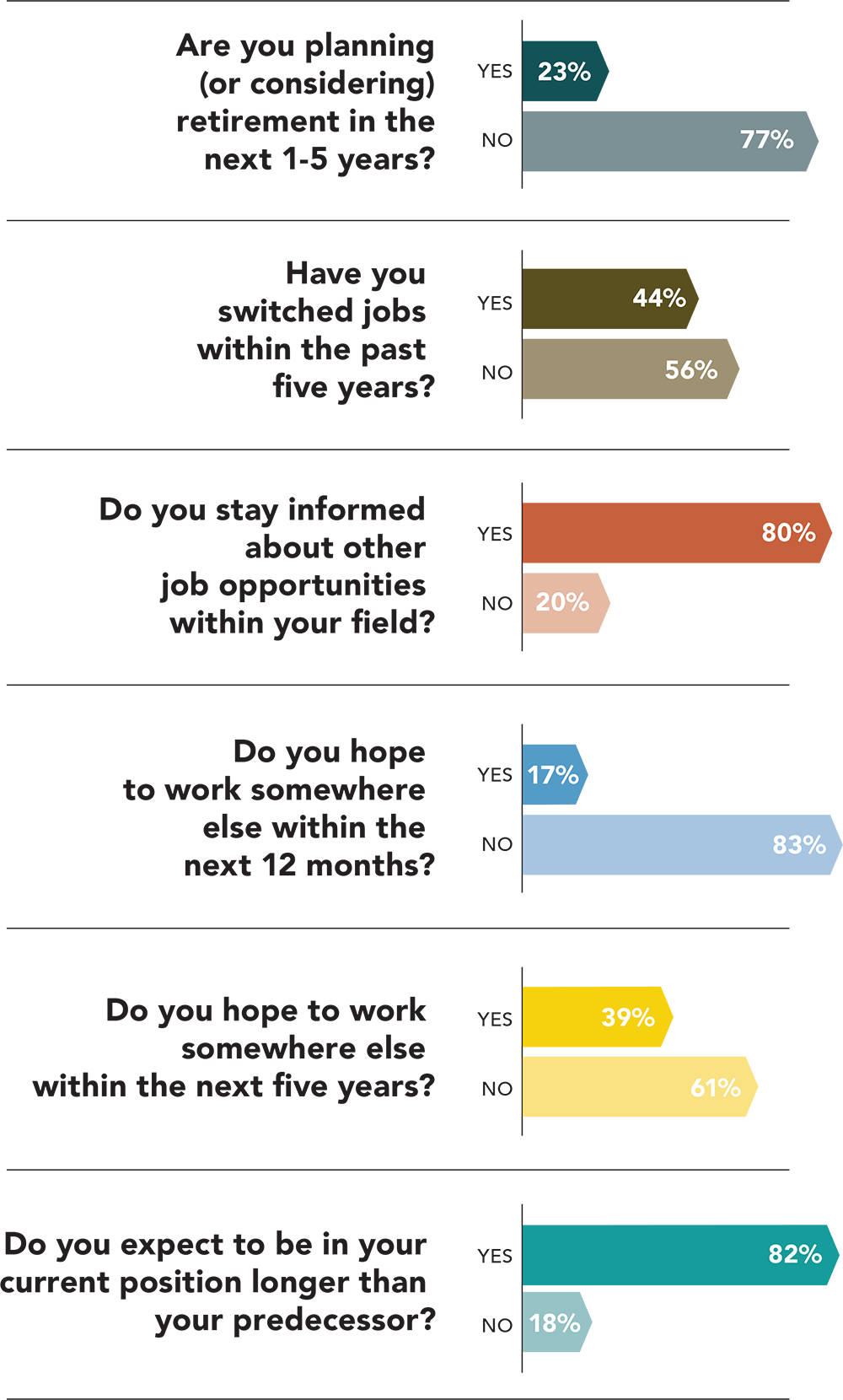2016 Job Outlook
As safety pros change jobs, new challenges arise


| Browse Job Outlook sections | Next: You said it |
Lay of the land
In general, the job outlook remains positive for safety professionals. Responses were similar – and, in some cases, identical – to one year ago, when most safety professionals reported that their jobs were secure and their departments were stable or growing.
An overwhelming 88 percent of respondents consider their jobs “very stable” or “relatively stable.” Ten percent cited “a slight possibility I will lose my job,” while 2 percent said they “believe strongly” that they will lose their job.

How about department staffing levels? Fifty-three percent expected no changes in the next 12 months. But 26 percent predicted their departments would add more staff during that time period, compared with only 6 percent who expect layoffs. As for the previous six months, 23 percent reported staff additions, while 11 percent experienced layoffs.
As always, industry affects a person’s job outlook. More than one-third of respondents (37 percent) work in manufacturing, and 15 percent are in construction. Only 7 percent of respondents work in mining, oil and gas, where a sharp downturn has hurt employment.
Most respondents made it clear that jobs are available but sometimes require sacrifices. Typically, safety professionals must remain open-minded if they are looking for work.
“The current job market for safety professionals is good, depending on the area of the country/world and one’s willingness to relocate,” said one respondent with 30 years of experience. “It is always a good time for the right-minded safety professional to find work.”
Another respondent agreed that the job market is healthy.
“More and more companies are understanding that improvements to the safety culture bring ‘side effects’ on improvements to quality, productivity and ultimately the bottom line,” said the respondent, a safety manager in his 50s.
Many respondents said organizations are looking for experienced certified safety professionals. In some cases, organizations seek bilingual candidates or others with specialized skills. “It seems pretty good if you have a degree in safety,” said a respondent in his 30s. “Almost all the positions I’m seeing require a bachelor’s at a minimum, regardless how many years you have in the field. This is why I’ve gone back to school to get ‘proof’ I know what I’m doing.”

 |
Infographic: The survey results summarized in one image |
Next: You said it |
Post a comment to this article
Safety+Health welcomes comments that promote respectful dialogue. Please stay on topic. Comments that contain personal attacks, profanity or abusive language – or those aggressively promoting products or services – will be removed. We reserve the right to determine which comments violate our comment policy. (Anonymous comments are welcome; merely skip the “name” field in the comment box. An email address is required but will not be included with your comment.)

